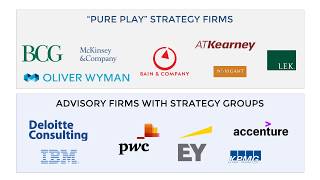
The career of environmental consultant may be right for you if your degree is just finished. This career requires a variety of skills, such as field studies and data analysis. Graduates should also have exceptional communication and management skills. Employers are attracted to graduates who have completed internships. Alternatively, you can work for a smaller firm specializing in a particular industry or service. You can also work for government agencies, although their job descriptions might overlap with those of clients and regulatory agencies.
Job description
An environmental consulting career is an option for those who are considering a career in the field of environmental science. But before you sign on that dotted line, here are some things to consider. Learn more about the various aspects of this job. Listed below are some of the top job descriptions for people entering the environmental consulting field. Below are the necessary skills to do this job. A successful environmental consultant will have excellent communication and interpersonal skills.
As an entry-level environmental consultant, you'll likely work under a senior consultant. You'll be responsible for conducting assessments of an organization's environmental impact. You will also be responsible to identify environmental hazards and advise on safety solutions. Additionally, you'll likely spend much of your time on a computer, reviewing data, evaluating information, communicating findings to clients, and other tasks. These skills are vital for all types of environmental consulting jobs.

Period of training
Although an HND in environmental science does not guarantee you a job in the industry, it can increase your chances of landing a job. Environmental consultants generally work for consultancy firms, which are hired by commercial and public organisations. An HND is not required, but environmental consultants may also have a postgraduate certificate and work experience. Because of the frequent need to travel, it is important that you have a driver's license.
A minimum of a bachelor's degree is required for entry-level work. Experience in managing marketing campaigns or business development is a plus. A solid client relationship is also essential. Your application should include a cover letter and a writing sample. If you are a recent graduate, a work-study program in an environmental science field will help you get the job that you've always wanted.
Education required
You might be interested in working as an environmental consultant if you have a master's or graduate certificate. Future consultants will benefit from a master's degree in environmental sciences. This program will allow them to acquire in-depth knowledge of ecology and biogeochemistry. Additionally, students will be able customize their studies according their interests and specializations. You cannot get into environmental consulting as an entry-level position, but you can always gain relevant work experience through a work-based study or placement.
A degree in an environmental-related field is also beneficial for this profession, because you will be able to apply what you've learned in your studies. The main thing to remember when applying for environmental-consulting jobs is that you must have an eye for detail and be knowledgeable about environmental regulations and laws. Working closely with other professionals requires you to be organized. It is important to keep client files organized and monitor client satisfaction.

Salary
The average entry-level salary for environmental consultants is $38,000 to $47,000 per year. According to the U.S. Bureau of Labor Statistics (USBS), the median annual salary of environmental consultants was $91,506 for 2017. According to the U.S. Bureau of Labor Statistics, the median annual salary for environmental consultants was $91,506 in 2017. The highest paid specialists were paid more. About the same amount was paid by entry-level consultants in consulting firms, state governments and federal agencies as for environmental consultants.
The location, education, and experience of environmental consultants will all affect the salaries. For entry-level consultants in the environmental field, salaries can reach as high as PS22,000 a year. As people become more concerned about the environment, so will the demand for environmental professionals. According to the BLS estimates, environmental consultants will need to grow by 11% through 2026. Private companies and local governments will be the most likely employers for environmental specialists. However, the field is highly competitive.
FAQ
How much should you charge to be a consultant?
It depends on what service you provide. If you are providing services for free, then there isn't any point in charging anything. However, if you are selling products or services, then you need to set prices based on value.
If you offer low-quality services then you don’t have anything for sale. Why would anyone pay anything for you?
If you are providing high-quality services, then you could ask for a higher price because people recognize the value you provide. Also, clients who purchase multiple packages from your company may get discounts.
What can I expect of my consultant?
Once you select your consultant, you should expect to hear back from them within a few days. They will ask you for information about your business, including the mission, goals, products, and budget. Next, they'll provide a proposal describing the scope and estimated time frame, fees, deliverables or milestones, as well as an estimate of costs.
If everything goes as planned, then both parties will agree to a written contractual agreement. The type of relationship between the parties (e.g., employee-employer, independent contractor-employer) will affect the terms of any contract.
If everything goes as planned, the consultant may begin to work immediately. You will have access both to your documents and internal resources and the consultant's skills and knowledge.
However, don't assume that just because someone is a consultant that s/he knows everything. It takes time and practice to become an expert on any subject you consult. Don't expect your consultant know everything about your company.
Why would a company want to hire a consultant for their business?
Consultants provide expert advice on how to improve the performance of your business. They don't sell products.
Consultants help companies make better business decisions through sound analysis and suggestions for improvement.
Consultants often work closely alongside senior management teams to help understand what they need to succeed.
They offer leadership coaching and training to help employees reach their full potential.
They could advise businesses about reducing costs, streamlining processes and increasing efficiency.
What is the real value of consulting?
Consulting is not only an entry-level profession for those looking to make fast money, but it's also an excellent way to acquire valuable skills that you can apply throughout your career.
Consulting offers many opportunities in project management as well as business development, strategy and training. You could find yourself working with small start-ups and large international corporations.
You can develop your skills and gain experience in a variety of industries by consulting. This could include learning to manage teams and write proposals, manage finances, analyze data, create presentations and conduct market research.
What skills do I need for consulting?
Consultants should be able to communicate effectively and have excellent analytical skills. This is important because you are working on projects where you may not know exactly what you are doing. You must learn how to manage people and solve problems quickly.
You also need to have excellent communication skills. Most clients expect a reply within 24 hours. If they don’t hear back, they assume that you aren’t interested. It's crucial to keep them informed and make sure they understand everything.
What is the average salary of a consultant?
Some consultants earn more than $100k per year, but most consultants earn between $25 and $50k. The average consultant salary is $39,000 This includes both hourly and salaried consultant.
Salary depends on industry, experience, location, and type of contract (contractor vs employee). Also, whether the consultant is located in their office or remote.
How does consulting differ to freelancing
Freelancers are self-employed individuals who offer their services to clients without employees of a company or agency. Hourly rates are usually charged based on the time they spend working on a client’s project. Consultants work for companies and agencies that employ them. They are often paid monthly or annually.
Freelancers tend to have more flexibility than consultants because they control their work hours and set their own prices. Consultants, however, often have better benefits such as retirement plans, vacation days, and health insurance.
Statistics
- So, if you help your clients increase their sales by 33%, then use a word like “revolution” instead of “increase.” (consultingsuccess.com)
- My 10 years of experience and 6-step program have helped over 20 clients boost their sales by an average of 33% in 6 months. (consultingsuccess.com)
- On average, your program increases the sales team's performance by 33%. (consultingsuccess.com)
- Over 62% of consultants were dissatisfied with their former jobs before starting their consulting business. (consultingsuccess.com)
- WHY choose me: Why your ideal client should choose you (ex: 10 years of experience and 6-week program has helped over 20 clients boost their sales by an average of 33% in 6 months). (consultingsuccess.com)
External Links
How To
How To Find The Best Consultant?
When searching for a consultant, the first thing you should do is ask yourself what your expectations are. Before you look for someone, you need to be clear about your expectations. Make a list of everything you think you might need from a consultant. This could include things like; professional expertise, technical skills, project management ability, communication skills, availability, etc. After you have outlined your requirements, you might want to ask friends and colleagues for recommendations. Ask them if they had any bad experiences with consultants previously and see how their recommendations compare with yours. Do some internet research if they don't have recommendations. There are many websites that allow users to leave feedback about their previous work experiences, such as LinkedIn and Facebook, Angie's List or Indeed. Use the feedback and ratings of others as a starting point to search for potential candidates. Once you have narrowed down your list, reach out to potential candidates and set up an interview. Talking through your requirements during the interview is a good idea. Ask them questions about how they can assist you in achieving those goals. It doesn't matter if they were recommended to your company; all that matters is that they are able to understand your business goals and show how they can help.